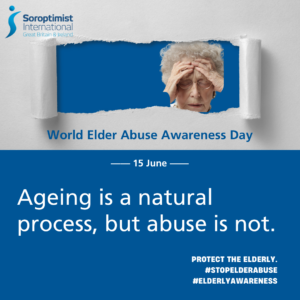 Elder abuse awareness is an important issue that we should all be concerned about. It refers to the mistreatment or harm of older adults, often by individuals in a position of trust or authority. This can include physical, emotional, sexual, or financial abuse, as well as neglect.
Elder abuse awareness is an important issue that we should all be concerned about. It refers to the mistreatment or harm of older adults, often by individuals in a position of trust or authority. This can include physical, emotional, sexual, or financial abuse, as well as neglect.
Raising awareness about elder abuse is crucial in order to prevent and address the issue. By educating ourselves and others, we can recognize the signs of elder abuse and take action to protect older adults in our communities. This can include reporting suspected cases of abuse, supporting victims, and advocating for stronger laws and policies to prevent elder abuse.
It is most important to promote a culture of respect and dignity for older adults, where they are treated with kindness and compassion, encouraging open conversations about ageing, promoting social inclusion and support networks, and providing resources and education for caregivers.
To promote a culture of respect and dignity for older adults we need to create an inclusive and supportive environment where their rights and well-being are valued. Some of the ways we can achieve this are through:
Education and awareness
Raising awareness about the challenges and issues faced by older adults is essential. This can be done through educational campaigns, workshops, and community events. By educating the public about ageism and the importance of respecting older adults, we can foster a culture of understanding and empathy.
Advocacy
Advocating for the rights of older adults is crucial in promoting respect and dignity. This can involve supporting policies and legislation that protect their rights, such as healthcare access, social security, and elder abuse prevention. By speaking up and advocating for change, we can create a society that values and supports older adults.
Encouraging social inclusion
Older adults often face social isolation, which can negatively impact their well-being. By promoting intergenerational activities and fostering social connections, we can combat loneliness and create a sense of belonging for older adults. This can include organizing community events, volunteering opportunities, and senior centres where they can engage with others.
Empowering older adults
Providing opportunities for older adults to contribute to society and be actively involved in decision-making processes can help foster a sense of worth and dignity. This can be done through mentoring programs, involving older adults in community initiatives, and creating platforms for their voices to be heard.
Training and support for caregivers
Caregivers play a vital role in the lives of older adults. Providing them with training and support can help ensure that they are equipped with the necessary skills and knowledge to provide quality care. This includes education on age-related issues, caregiver support groups, and respite care options to prevent burnout.
Addressing ageism
Challenging ageist attitudes and stereotypes is essential in promoting respect and dignity for older adults. This can be done through media campaigns, challenging discriminatory practices, and promoting positive portrayals of aging in the media.
By implementing these strategies, we can create a society that not only respects and values older adults but also provides the necessary support and resources for them to age with dignity and fulfillment.
Together, Soroptimists work towards creating a society that values and protects the rights and well-being of older adults, and raise awareness about the importance of preventing elder abuse.
Join the Soroptimists in this important mission to promote a culture of respect and dignity towards older members of society.
Blog by Ivete Hunt, SI Bristol


